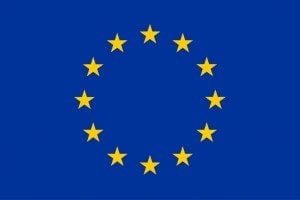
Culture and community for migrant women in Croatia
Živi Atelje DK, led by Cyrille Cartier and the team, launches ‘Circles of Care, Art and Community‘ in 2024, a project funded by MRG’s MARIO programme. This initiative fosters cultural integration for migrant women in Croatia, uniting newcomers with established residents through art and community engagement. Through workshops and gatherings, women share skills, knowledge and empowerment, forging bonds based on mutual understanding and diversity. Amidst the uncertainty faced by asylum seekers and refugees, the project provides a safe space for healing and support, addressing trauma and fostering individual empowerment.
Živi Atelje DK will embark on a new project in 2024 called ’Circles of Care, Art and Community’ made possible through the capacity-building and funding by MRG’s Minorities, Accountability, Rights, Independence, Organisational Development (MARIO) programme, funded by the European Union.
This project is part of our Women to Women collective, which uses art to bring together women who want Croatia to be their home with those for whom Croatia is already home to facilitate the integration of women into a new, ever-evolving community. Through workshops, gatherings, and excursions, women share and gain skills, knowledge, and empowerment while building on a support network and shared values of mutual understanding and tolerance and embracing diversity into a dynamic inclusionary society.

The idea of the project is to create a safe, secure, and intimate space for women to exchange ideas, problems, and solutions or simply spend time together through connection through womanhood. Asylum seekers and refugees live in uncertainty about their status, their family and friends in their country of origin — the one they were constrained to leave — and their future. Given the fluctuating political and economic situation in Croatia and Europe and the strengthening of the position held by many that more borders, control and deportations are needed, anxiety about the future is great. Together, the atmosphere of uncertainty and fear adds to the stress refugees and asylum seekers feel and can complicate integration during their time in Croatia.
Furthermore, many people within the refugee and asylum seeker community are dealing with prolonged traumas from what they survived in their home country and/or during their journey to Europe. Lack of care is sometimes due to language barriers, resources, and a lack of skills among those who do speak their language. Untreated traumas, in turn, can cause long-term physical and mental health complications (even for health professionals aware of the consequences). The trauma often spreads beyond the individual to the family and immediate community, causing social and integration problems and others, including domestic violence and substance abuse, among others.

The project will also enable us to consider our weekly gatherings. The gathering, in and of itself, provides further opportunities to better know oneself, face one’s prejudices and improve community relations. The gathering is also a step toward healing invisible wounds, whether formally through art therapy or informally, in the sense of creating a secure and intimate space for women to express themselves and to help each other. The gathering helps with individual empowerment so a woman is dealt with as an individual rather than as part of a larger group of foreigners in Croatia or as a wife/mother in a family component.
 Top photo credit: Živi Atelje Dajht Kralj.
Top photo credit: Živi Atelje Dajht Kralj.
 This content is a guest post from one of our partner organizations about their work as part of our ‘Minorities, Accountability, Rights, Independence and Organisational Development’ (MARIO) programme. Learn more >
This content is a guest post from one of our partner organizations about their work as part of our ‘Minorities, Accountability, Rights, Independence and Organisational Development’ (MARIO) programme. Learn more >
 MARIO is funded by the Citizens, Equality, Rights and Values Programme (2021-27) of the European Union (ref: 101091387).
MARIO is funded by the Citizens, Equality, Rights and Values Programme (2021-27) of the European Union (ref: 101091387).


